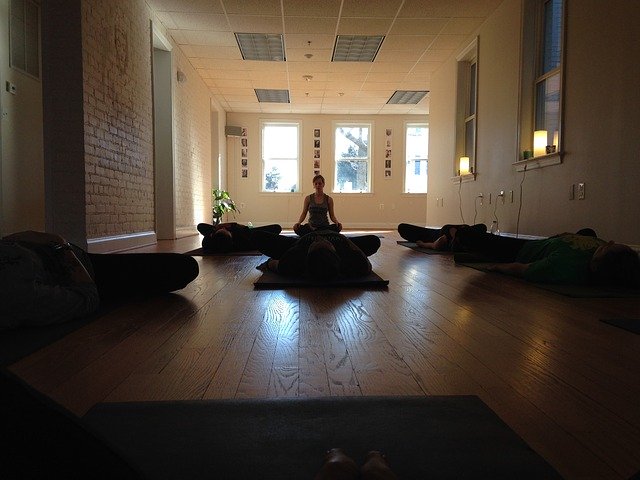What is Vedic meditation?
Vedic Meditation or Transcendental Meditation (TM) may have started off as a buzzword in the Western world over the last few decades, but in recent years it has emerged as a powerful tool to support and boost mental health and a general sense of well-being. Although meditation is a practice as ancient as human civilization itself, it has only become more useful as time moves on and the demands of life intensify.
Don’t trust us on its uses? Well maybe you can trust society’s most famous about meditations power. With well-known public figures like Oprah Winfrey, Cameron Diaz, and even Jerry Seinfeld being long-time enthusiasts of meditation always keen to explain how it has helped them. Closer to home, Justin Langer and Hugh Jackman also maintain a regular meditation practice.
If you are considering starting a daily meditation practice, you’re bound to have questions that we can help with, so let’s get started.

Misconceptions about Meditation
Before we jump into it, let’s clear up a few common misconceptions about meditation:
It is not a belief system or a religion. It is also not only a breathing technique. Meditation is a mental practice to relax the mind and body.
- It is not meant to control the mind, but rather to train and calm a busy mind.
- It may take some time to calm your mind, but you do not have to practice for years to feel the difference. You will notice it in a few days.
- It does not require any change in your lifestyle or diet. Many people avoid meditation because they think they’ll have to become vegetarian or give up their Friday night beers. The only requirement of meditation is that you give 20 minutes of your day to yourself.
How is Vedic Meditation different from Traditional Meditation?
Traditional forms of meditation tend towards being a type of mind-body or relaxation therapy. The idea is to focus on a single object or concept to help center and calm your mind. For instance, you may choose to pay attention to your breath, stare into a candle, or repeat a soothing chant.
Vedic Meditation falls under that third category, being a variation of mantra meditation. And not just any mantra, but personal ones typically unique to each and every person.
While other types of meditation may ask you to empty your mind of thoughts, this is not always possible especially for beginners. By focusing on a chant, Vedic meditation helps provide something meaningful for you to ground your mind with.
When your attention is focused on this chant, your mind begins ‘clean itself out’. You will find that you understand yourself better, experience less psychological stress and negativity, and have clearer thoughts.
Compared to other variations, this focus on personal mantra also makes it readily applicable in daily practice and a strong mental technique for anyone in need of it.

What are the Benefits of Vedic Meditation?
Help with stress and sleep
With everyone suffering from the impact of stress, daily life can feel impossible. Vedic meditation helps by helping our mind settle, reducing our stress chemistry and brain function. This in turn helps us sleep better and generally enjoy a healthier and happier lifestyle.
Reduce symptoms of anxiety
Similar to the above, Vedic meditation can help combat stressful situations and reduce the psychological stress in our daily lives. By acting as a readily accessible mental technique, meditation can work to help calm down and refocus our attention on the important things and better handle a situation.
It can support a healthy digestive system
By reducing our psychological stress, Vedic meditation in turn helps reduce our metabolic rate and in turn boost our digestive system. This means it can help combat IBS, cramps, acid reflux, constipation, and so much more. Who would’ve thought it?
Improve immune functions and pain tolerance
The benefits of meditation for mind and body have been researched extensively by this point in favor of positive health benefits. Our minds and bodies are deeply connected to one another, so through better mindfulness practices, we create a healthy body. With all this in mind it might not come as a surprise that through regular Vedic meditation practice, we in turn can boost our own immune system.
Quality of Life
Vedic Meditation can not only help you recuperate from specific health conditions but also significantly improve the quality of your life. A Harvard University study found that being engaged in the here and now has significant implications on people’s happiness levels. A 2012 UCLA study discovered that those who meditate for years have extra folds in the brain’s cortex which enables clearer thinking and faster processing of information.
How do I practice Vedic Meditation?
Vedic Meditation is widely popular in Australia, but do keep in mind that this type of meditation is also known as Transcendental Meditation, so the two terms may be used interchangeably.
At the outset, you might like to consider shorter mantra meditation programs to see if it suits you. In these preliminary courses, you will be given your very own Vedic meditation mantra which will work with your emotional and mental traits.
With Vedic Meditation, you can incorporate an effortless regular practice into your daily schedule while remaining fully engaged with the external world.
As you make progress, you might choose longer sessions to enhance and deepen your daily mediation practice. Some people like to go on meditation retreats where you can disconnect from the rest of the world and go on deeper inward journeys. These retreats allow you to unleash the full potential of Vedic Meditation.
Tips for a good Vedic meditation session
1. Choose your mantra
Unlike other variations of meditation, you’ll be using your own personal mantra. If you’re learning from a mantra meditation program, then your personal mantra will be handpicked for you by a trained meditation teacher. If you’re trying to learn it yourself then you might want to even pick one yourself, be it English or Sanskrit. However, for it to be truly Vedic then the mantra must originate from the Vedas.
2. Find a quiet place
When starting with any mindfulness technique then its always best to start with quiet spaces. Try and step away from your daily life with this and ensure that you won’t be disturbed for this time. Its also best that you make your self comfortable with a cushion or a chair if needed. As your skills grow this will become easier and you’ll be able to do it anywhere.
3. Pay attention to your body
With everything set up, get into a comfortable position, physically relax, and start to take deep breaths. Letting go of any tension or stress with each exhale.
4. Use your mantra
Recall your mantra and start to repeat it. This can be verbally or mentally based on what you’d prefer. If your attention starts to drift as you go, don’t worry that’s normal and part of the process. Just take a moment to return you consciousness back to your personal mantra and then resume from there.
Remember this can be adjusted as needed. If you like you can lengthen the time between repetitions or switch between mental and verbal to match your needs, attention span, and focus.
5. Finish with a breath
When you’re ready to finish, take a few deep breaths and return your attention back to the world around you. Slowly start to refocus on the physical senses of your body, the state of your mind, and any immediate emotions. Remember that there’s no right way to feel coming out, just a reassessment of what’s around you.
What is the long-term outlook on Vedic Meditation?
Vedic Meditation or any other form of meditation can only show results when done regularly. It is best to keep practicing until it becomes a habit. Once you have learned the techniques of this form of meditation, it will become second nature. You’ll be able to meditate anywhere, whether you’re in a park or commuting to work.
It is recommended to meditate twice a day (morning and evening) with 20 minutes of practice each time. But even if you can manage only one session of 20 minutes to start with, you’ll begin to notice the benefits very soon.
If you’re looking for meditation centres near you, Avaana can help you find one and make a start for a more meaningful life today.



